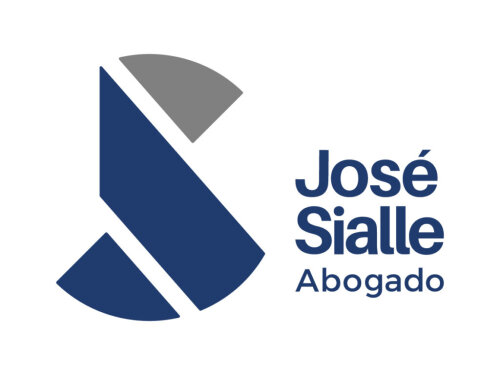Best Probate Lawyers in Córdoba
Share your needs with us, get contacted by law firms.
Free. Takes 2 min.
List of the best lawyers in Córdoba, Argentina
About Probate Law in Córdoba, Argentina
Probate - in Argentina usually called "sucesión" - is the legal process used to identify the heirs of a person who has died, validate any will, settle debts and obligations, and transfer assets to the rightful beneficiaries. In Córdoba the process follows the rules of the national Código Civil y Comercial de la Nación together with procedural rules and registration requirements established by provincial courts and registries. Probate may be judicial when heirs must open a succession case in a competent court - or extrajudicial when parties agree and use notarial channels and registries where permitted. The goal is to ensure legal title passes correctly, creditors are notified and paid, and any disputes among heirs are resolved.
Why You May Need a Lawyer
You may need a lawyer if any of the following situations apply - there is a contested will, heirs cannot agree on division of assets, the estate includes complex assets such as businesses, shares, or foreign properties, creditors claim against the estate, or tax and registration issues arise. A lawyer helps prepare and file the succession petition, represent clients in court, negotiate settlements among heirs, advise executors or administrators about their duties and liabilities, handle creditor claims and tax compliance, and coordinate transfers of real estate and bank accounts with registries and banks. A lawyer also protects the rights of vulnerable parties - minors, incapacitated persons or absent heirs - and guides cross-border succession matters when assets or heirs are outside Argentina.
Local Laws Overview
Key legal points relevant to probate in Córdoba include the following. The national Civil and Commercial Code governs succession substantive rules - including intestacy rules and validity of wills - while provincial courts handle probate procedures. Wills recognized under Argentine law include public notarial wills, closed wills and holographic wills - each requiring different formalities. Argentine law protects certain close relatives with forced heirship rules - a legally reserved portion that cannot be fully disinherited - so even an express will may be limited by those protections. Probate normally requires an inventory and valuation of assets, notification to creditors, payment of debts and taxes, and a final partition or adjudication of assets to heirs. Real estate transfers require presentation of probate documentation before the provincial Property Registry and payment of any applicable transfer or inheritance taxes and municipal levies. Timeframes and fees vary - some successions can be resolved extrajudicially in months while contested or complex cases may take years.
Frequently Asked Questions
What exactly starts a succession proceeding in Córdoba?
A succession usually begins when an interested person - an heir, legatee or creditor - files a petition with the competent provincial court to open the succession. The petition should include the death certificate, any will if available, and basic information about heirs and assets. When parties agree and the estate is simple, a notary may be able to handle certain steps extrajudicially where law permits.
Do I have to open probate if there is a will?
Yes. A will does not transfer title by itself - it must be declared valid and executed through a succession procedure so registries, banks and third parties accept transfers. The existence of a will may alter the order of heirs and how assets are distributed, but formal probate or a notarial settlement is normally required.
Who inherits if someone dies without a will in Argentina?
When there is no will the Código Civil y Comercial sets an order of intestate succession. Generally the estate goes first to descendants, then to the surviving spouse and ascendants, then to collateral relatives. The exact shares depend on the composition of the family. Forced heirship rules also apply, protecting certain proportions for close relatives.
How long does probate take in Córdoba?
There is no single answer - simple consensual successions resolved through notarial channels may take a few months. Judicial successions that require inventory, creditor notice, contested will challenges or complex asset valuation can take from many months to several years. Delays are common when heirs are hard to locate, assets are abroad, or disputes arise.
Can a will be challenged - on what grounds and when?
Yes. Common grounds for contesting a will include lack of testamentary capacity by the testator, lack of required formalities, undue influence, fraud or falsification. Time limits and procedural rules for contestation vary by case and court practice - you should seek legal advice promptly if you intend to challenge or defend a will.
What documents are typically needed to start a succession?
Important documents include the death certificate, any original will, identity documents of the deceased and heirs, marriage or civil union certificates, birth certificates for children, property deeds, car titles, bank statements, tax records, lists of debts and creditor information. The more complete the documentation, the smoother the process.
How are debts and creditors handled in a succession?
Creditors must be notified so they can make claims against the estate within the legal period established by the court or procedure. Estate assets are used to pay legitimate debts before distribution to heirs. If liabilities exceed assets heirs may accept the inheritance under benefit of inventory - limiting liability to estate assets - or renounce the inheritance entirely. A lawyer can help evaluate the estate position and advise on acceptance or renunciation.
What steps are needed to transfer real estate to heirs?
To transfer real estate heirs generally need a final probate decision or a notarial adjudication that establishes legal title, together with the death certificate and proof of payment of applicable taxes and fees. The property must be registered at the provincial Property Registry of Córdoba using the court order or notarial instrument. Outstanding mortgages, municipal rates or utility debts should be resolved as part of the succession process.
Are there inheritance taxes or fees I should expect in Córdoba?
Tax and fee treatment of inheritances can include provincial transfer taxes, registry fees and notary costs. Argentina does not have a uniform federal inheritance tax, but provinces and municipalities may impose taxes and charges. The exact amounts and formal requirements vary depending on the asset types and the provincial rules in force at the time. Ask a local lawyer or the provincial tax authority for up-to-date information.
Can an heir renounce an inheritance - and what are the consequences?
Yes. An heir may renounce an inheritance, but the renunciation must meet formal requirements - usually a written and often notarized declaration. Renouncing passes the share to other heirs according to legal rules. Renunciation is irreversible in many cases and should be considered carefully - a lawyer can advise if renouncing is advisable for debt, tax or family reasons.
Additional Resources
For practical assistance and authoritative information consider contacting local and provincial bodies. The Córdoba provincial judiciary provides procedural information about which courts handle successions and the steps to open a case. The Registro Civil issues death certificates and identity records needed for succession. The Provincia de Córdoba property registry handles registration of real estate transfers. The provincial tax authority can advise about any taxes or fees on inheritances. Professional organizations - the Colegio de Abogados de la Provincia de Córdoba and the Colegio de Escribanos de la Provincia de Córdoba - can help locate qualified lawyers and notaries who specialize in succession matters. Finally, banks and municipal registries provide specific requirements for account freezes, utility accounts and municipal obligations that may affect the estate.
Next Steps
1. Gather essential documents - obtain the death certificate, locate any will, collect identity documents for heirs, and assemble documentation on real estate, bank accounts, business ownership, debts and insurance policies. The more complete the file, the quicker initial legal advice can be given.
2. Secure assets - take practical steps to protect estate assets from loss or dissipation. Notify banks and insurers of the death and ask about temporary holds or required procedures for accessing funds. Do not distribute assets informally until you know the legal position.
3. Seek a local probate lawyer - choose a lawyer experienced in Córdoba succession practice. Ask about fee structure - fixed fee for routine matters or hourly rates for litigation - and request an initial assessment of likely timeframes, costs and risks. If family members prefer to avoid litigation, ask about mediation or notarial options.
4. Consider acceptance or renunciation - after legal advice decide whether to accept the inheritance outright, accept under benefit of inventory to limit liability for debts, or renounce. This decision has significant legal consequences and may be time sensitive.
5. Follow procedural steps - with your lawyer prepare and file the succession petition or initiate extrajudicial settlement, notify creditors if required, obtain inventories and valuations, resolve tax and registry formalities, and finalize partition and transfer of assets.
6. Keep communication open - keep heirs informed, respond to requests for documents promptly and keep records of all actions and payments. Clear recordkeeping helps prevent disputes and speeds final distribution.
Legal matters in probate can be complex and sensitive. This guide provides an introductory overview - for specific advice tailored to your situation contact a qualified probate lawyer in Córdoba who can analyze your facts and explain the practical and legal options available.
Lawzana helps you find the best lawyers and law firms in Córdoba through a curated and pre-screened list of qualified legal professionals. Our platform offers rankings and detailed profiles of attorneys and law firms, allowing you to compare based on practice areas, including Probate, experience, and client feedback.
Each profile includes a description of the firm's areas of practice, client reviews, team members and partners, year of establishment, spoken languages, office locations, contact information, social media presence, and any published articles or resources. Most firms on our platform speak English and are experienced in both local and international legal matters.
Get a quote from top-rated law firms in Córdoba, Argentina — quickly, securely, and without unnecessary hassle.
Disclaimer:
The information provided on this page is for general informational purposes only and does not constitute legal advice. While we strive to ensure the accuracy and relevance of the content, legal information may change over time, and interpretations of the law can vary. You should always consult with a qualified legal professional for advice specific to your situation.
We disclaim all liability for actions taken or not taken based on the content of this page. If you believe any information is incorrect or outdated, please contact us, and we will review and update it where appropriate.









